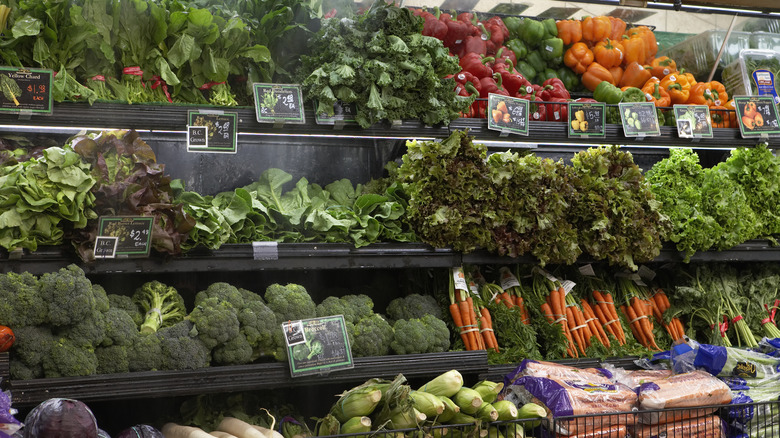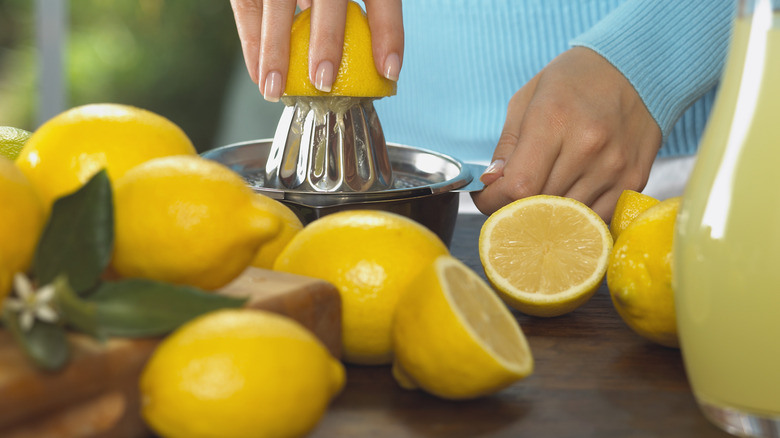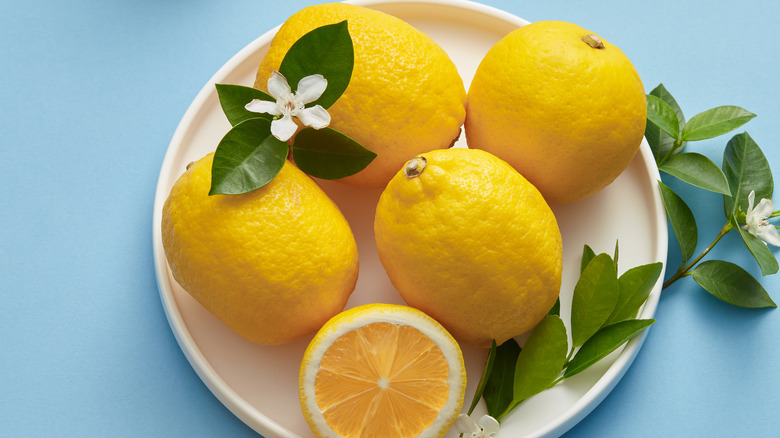How To Use Lemon To Strip Pesticides From Grocery Produce
Innovations in modern agriculture have benefited us in many ways. We enjoy a much wider selection of fresh fruits and vegetables, we no longer have to wait for certain produce to be in season as often as we used to, and we can find fresh produce in just about any grocery store, no matter where it's located. These positives come with at least one major concern, however: the use of pesticides. Synthetic pesticides have been used in American farming since the 1930s.Their use ballooned in the 1950s, as these insect-killing chemicals ensure a much greater yield of crops. Although pesticide usage has provided more food for Americans in the short term, many have raised concerns about their environmental and physical consequences. One notable example of the double-edged relationship between food and pesticides is DDT, which was actually banned in 1972 by the Environmental Protection Agency for its adverse effects on wildlife and humanity.
Today, as many farmers and agricultural companies still rely on pesticides to ensure an insect-free crop, you may find yourself worried about what exactly you're actually eating when you consume produce from your local grocer. Luckily, there are ways to strip pesticides from your fruits and veggies — and one of the best involves the simple lemon.
How can you use lemons to ensure pesticide-free produce?
When you walk into the grocery store and lay eyes on the produce section's shining towers of fruits and veggies, you may not realize that pesticides and other chemicals linger on many of those ruby-red apples and leafy heads of lettuce. The Environmental Working Group estimates roughly 75% of non-organic produce in American supermarkets contains traces of pesticides. While this may sound disturbing at first glance, there's good news: You can easily wash your produce using very common ingredients, such as lemons.
A very basic cleaning spray consists of three ingredients: lemons, cold water, and distilled vinegar. Mix these ingredients into a spray bottle and use it on your produce. Once it's been sufficiently sprayed down, rinse it under cold water, then let it dry before storing it as you normally would. Another good cleaning solution for your fruit combines water, lemon juice, and baking soda together.
Notably, these cleaning mixtures don't affect the flavor or color of the produce in question. However, while it's possible to spray the produce and eat it as is, a quick rinse will keep your comestibles as fresh as possible.
The power of lemons
What exactly is it about lemons that makes their juice so great for cleaning? The answer lies in lemon juice's citric acid: It's a powerful cleaning agent, tackling bacteria and microorganisms with ease. It's also excellent at cutting through grease and grime. This makes lemon juice, either fresh-squeezed or bottled, an incredibly efficient kitchen tool, whether you're using it on cutting boards, knives, or produce.
Despite this, some believe that lemon juice may not be as effective as removing pesticides (or at least certain types of pesticides) as other cleaning agents. Research published in the Journal of Agricultural and Food Chemistry suggests baking soda might be a better option. Luckily, putting together a simple solution of baking soda and water couldn't be easier.
None of this is to say you'll get sick from eating grocery store produce. But it never hurts to ensure your fruit and vegetables — even your lemons! — are clean and washed before serving.


